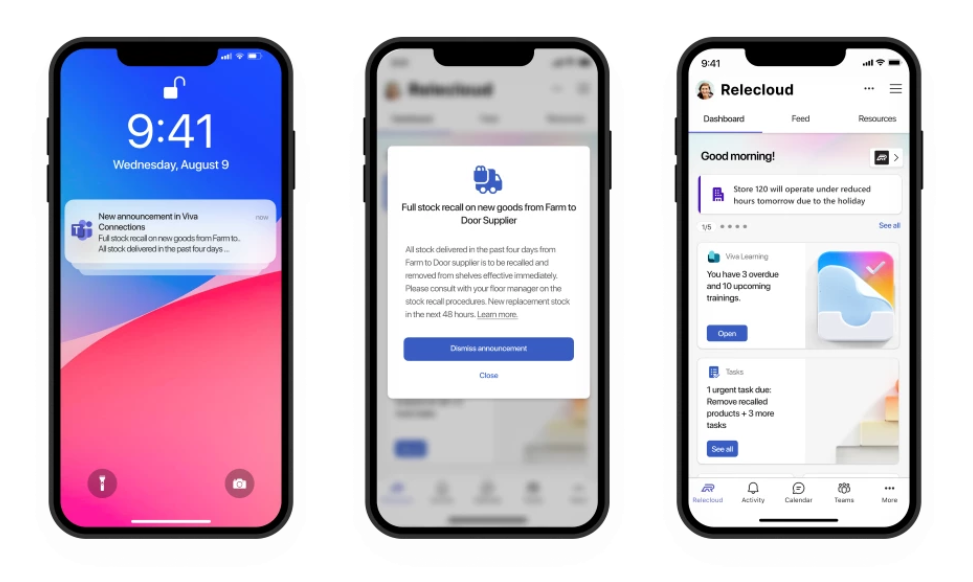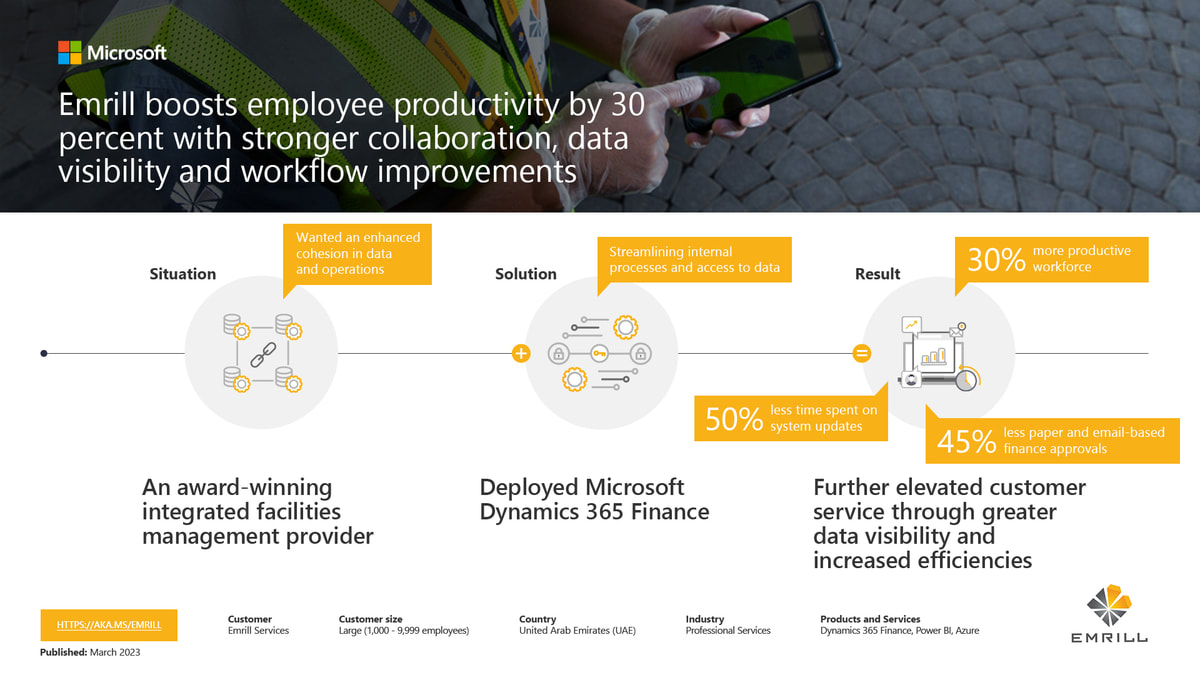|
The retail sector in 2023 has been on a dynamic journey, navigating through economic uncertainties and evolving customer expectations. Despite these challenges, the industry has exhibited remarkable adaptability and innovation. A prime example of this is the adoption of next-generation AI. This advanced technology, along with other digital tools, has revolutionized retail operations, introducing a new era of efficiency and customer-focused strategies.
Understanding Next-Gen AI in Retail
Our focus is on harnessing next-generation AI to enhance the capabilities of frontline workers. Read our detailed blog The synergy between innovative technology and our skilled retail workforce is reshaping our industry's core. We're embracing AI and advanced tools, uncovering new realms of productivity, efficiency, and customer focus. This approach, integrating elements of manufacturing resource planning, has optimized task management and automated workflows, allowing frontline teams to concentrate on exceptional customer service. Streamlining Frontline Operations with AI and Digital Tools Retail employees play a vital role in customer engagement and smooth store functioning. However, challenges like understaffed shifts and outdated systems can hinder their efficiency. Digital Transformation of Routine Store Processes Retailers are now using Store Operations Assist within Microsoft Teams, a move that exemplifies the integration of manufacturing resource planning into everyday retail operations. This tool helps store associates excel in customer service by providing access to sophisticated retail workflows and insights. Store managers can also leverage the new Shifts plug-in for Microsoft 365 Copilot, enhancing schedule management and operational insights. This integration brings manufacturing resource planning principles to the forefront, streamlining shift management and operational data access. Retail Evolution: Resilience Meets Innovation Retail stores are reimagining their operations with AI and digital tools, leading to more efficient and customer-centric environments. Brands like L’Oréal exemplify this digital transformation, enhancing frontline workers' roles through these tools. Revolutionizing Retail Communication with Modern Solutions Effective communication within the retail chain is vital. Microsoft Teams unifies this communication, fostering better collaboration and information flow. This evolution represents a shift from isolated store operations to a connected retail ecosystem, embracing elements of manufacturing resource planning. Central Planning, Regional Management, Local Execution Viva Connections within Teams enables targeted communications and notifications for store associates, streamlining operational messages and updates. Tailoring the Retail Home Experience in Teams To cater to the diverse needs of frontline employees in retail, Microsoft has introduced the ability to create multiple home experiences within Teams, reflecting each brand's unique identity. This feature aligns with the principles of manufacturing resource planning, offering a customized, brand-specific dashboard for frontline teams. Instant Communication with Retail Frontline Teams Communication is key, especially for larger and more dispersed frontline teams. Integrations with industry-standard devices enhance the ability to communicate effectively, crucial for manufacturing resource planning. Enhancing Frontline Engagement through Streamlined Communication AI capabilities are instrumental in task management and producing localized brand and marketing communications. Copilot in Microsoft Viva Engage offers personalized messaging suggestions, enhancing engagement and aligning with manufacturing resource planning strategies. Simplifying Trusted Frontline Experiences Simplifying processes is essential for retail organizations. By integrating technologies that automate routine tasks, retail companies can enable their frontline to focus on higher-value tasks, a principle central to manufacturing resource planning. Securing Customer Data with Microsoft 365 on Shared Devices Managing in-store devices is simplified with Microsoft Intune and Entra ID, ensuring secure and efficient sign-in experiences for frontline workers, an approach that complements manufacturing resource planning. Microsoft's Solutions for the Frontline Retail Industry The retail industry continues to demonstrate resilience and innovation. Microsoft is at the forefront, providing solutions that balance operational efficiency with exceptional customer and employee experiences. This holistic approach, integrating manufacturing resource planning principles, is setting a sustainable course for the industry's future."
0 Comments
Improved Decision-Making Through Data Accuracy
The adoption of the ERP solution significantly enhanced data visibility and accuracy, key elements for making informed decisions in the fast-paced facilities management industry. Enhanced reporting and dashboard capabilities led to greater confidence in decision-making, fostering trust and compliance during audits. The system also highlighted training needs within the team, facilitating targeted and effective skill development. Elevating Customer Experience to New Heights At the heart of Emrill's digital transformation was the goal of delivering a world-class customer experience. The streamlined processes, automation, and innovative approaches brought about by Microsoft Dynamics 365 Finance played a crucial role in achieving this goal. The enhanced efficiency and service quality significantly boosted customer satisfaction and set new standards in the industry. Conclusion Continuous Improvement and Future Endeavors Emrill's journey with Microsoft Dynamics 365 Finance is not just about present gains but also about future possibilities. The company is continuously exploring new avenues, like integrating the Walkie Talkie app in Microsoft Teams, to further streamline communication and operational efficiency. This ongoing commitment to improvement and innovation ensures that Emrill Services remains at the forefront of its industry, continuously delivering exemplary service. Partnering for Success The successful implementation and ongoing optimization of Microsoft Dynamics 365 Finance at Emrill Services is a testament to the power of strategic partnerships and the impact of embracing digital transformation. With the support and expertise of the Microsoft FastTrack team and Microsoft Lifecycle Services, Emrill has not only transformed its internal operations but has also set a benchmark for others in the industry to follow. Spark Telecommunications Soars into Agility with Epic Microsoft Dynamics 365 Transformation
Spark's transformation with Microsoft Dynamics ERP stands as a stellar example in the realm of ERP system examples, showcasing a large-scale back-office metamorphosis. As New Zealand's premier telecommunications and digital services provider, Spark's journey over two years involved 11 process leads and a broad team of tech experts from four companies, redefining the essence of Agile in a corporate setting. In the bustling environment of Spark, with over 5,000 staff and numerous partners and contractors, activities range from designing sophisticated business telephony solutions to managing supply chains for retail stores, not to mention spearheading the rollout of 5G technology. The company's commitment to an Agile approach required a robust and adaptive back-end system, leading to the selection of Microsoft Dynamics 365, a prime example in modern ERP system examples. Agility or Bust: How Spark's Legacy System Held Them Back The previous ERP system, rooted in the late 90s, was cumbersome and inadequate for Spark's dynamic operations. Lisa Chapman, the enterprise automation lead at Spark, emphasized the necessity for an intuitive system. The old SAP system's inability to track dynamic team operations was a significant hindrance, rendering it obsolete in an era demanding agility and flexibility. Choosing Microsoft Dynamics 365 Finance and Supply Chain Management was a strategic move. This system is frequently cited in ERP examples for its adaptability and ready-to-use functionality, requiring minimal customization, making it a perfect fit for Spark's diverse and complex needs. The implementation strategy at Spark was unique, being business-driven rather than technology-led. This strategy required deep integration across multiple business areas, including finance, HR, inventory management, and supply chain, involving over 70 interfaces, a testament to the flexibility and capability of Microsoft Dynamics ERP. FastTrack to Success: Spark and Microsoft Forge a Collaborative Path to Modernization The project, managed via Microsoft Teams, was a beacon of collaboration and innovation during the challenging times of COVID lockdowns. The Microsoft FastTrack team's involvement was pivotal, providing essential support in designing and implementing the process. Their recommendation for an asynchronous rollout, coupled with real-world "dress rehearsals," was crucial in mitigating risks and ensuring a seamless transition. Despite the ambitious nature of the "Big Bang" approach, the transition was smoother than anticipated. The shift to Dynamics 365 was a leap forward in operational efficiency, significantly reducing the time for the first month-end financial process. Employee onboarding also transformed, becoming more streamlined and efficient. Dynamics 365's user-friendly nature led to quick adoption within Spark, simplifying tasks and empowering employees with self-service capabilities. The Cornerstone of Agility: How Spark Leverages ERP to Stay Ahead of the Curve This transformation journey is a significant benchmark in ERP system examples, illustrating how Microsoft Dynamics ERP can revolutionize a traditional telecom company into a digital services leader. The successful integration showcases the system's adaptability and growth potential, perfectly aligning with Spark's future goals. As Spark continues to evolve, the role of Dynamics 365 remains pivotal. The company is now poised to leverage ERP data through intelligent analytics, enhancing business processes for more accurate reporting and forecasting. This ongoing journey into ERP exemplifies how a comprehensive system like Microsoft Dynamics can be a cornerstone for modern, agile businesses. Furthermore, the transition has set a precedent in the industry, demonstrating how a large-scale ERP overhaul can be accomplished without disrupting ongoing operations. This successful implementation has not only streamlined Spark's internal processes but also improved its interactions with customers and partners. The "Big Bang" implementation, although risky, proved to be a strategic triumph. It allowed Spark to avoid the pitfalls of gradually transitioning systems and instead leapfrog into a state-of-the-art ERP environment. This approach also eliminated the need for maintaining parallel systems, thereby reducing complexity and cost. A Beacon of Hope: Spark's ERP Story Inspires Organizations Embracing Digital Transformation The transformation extended beyond mere technological upgrade. It was a cultural shift, embedding a new way of working within Spark. Employees now enjoy a more collaborative and integrated work environment, facilitated by the unified platform of Dynamics 365. This shift has fostered a more data-driven culture, where decisions are made based on real-time insights, enhancing overall business agility. The success story of Spark's transformation with Microsoft Dynamics ERP is a beacon for other organizations contemplating a similar journey. It underscores the importance of aligning business objectives with technological capabilities and the value of choosing an ERP system that can grow and evolve with the business. In conclusion, Spark's journey is a testament to the transformative power of a well-executed ERP system implementation. It stands as a shining example of how businesses can leverage technology like Microsoft Dynamics ERP to not only meet current operational needs but also lay a foundation for future growth and innovation. This story is a guiding light for companies worldwide, showcasing the potential of ERP systems to redefine business processes and drive organizational success in the digital age. |
AuthorWrite something about yourself. No need to be fancy, just an overview. Archives
March 2024
Categories |
|
Saudi Arabia
PO Box 12831 2357, Al Malaz - Zaid Ibn Thabit street, Venicia Building, Riyadh, Saudi Arabia. |
United States4008 Louetta Rd
Spring, Texas 77388 USA |
Home
|
Request a demo
|




 RSS Feed
RSS Feed

